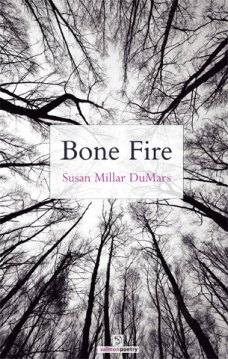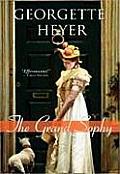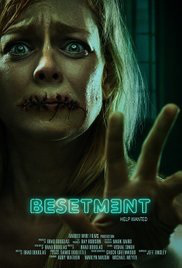Bone Fire by Susan Millar DuMars, Salmon Poetry, 2016 was launched by Robyn Rowland on 18 April 2016 at the 2016 Cuirt, International Festival of Literature, Galway, Ireland.
 Susan Millar DuMars is an Irish-American poet, born in Philadelphia in 1966 to a Belfast mother. She came to visit Ireland in 1997 and fell in love with Galway. Susan also fell in love with the poet Kevin Higgins; now her husband; and the couple as a team have organised the ‘Over the Edge’ reading series and facilitated creative writing workshops throughout Galway since 2003. Susan is editor of the 2013 anthology Over the Edge: The First Ten Years.
Susan Millar DuMars is an Irish-American poet, born in Philadelphia in 1966 to a Belfast mother. She came to visit Ireland in 1997 and fell in love with Galway. Susan also fell in love with the poet Kevin Higgins; now her husband; and the couple as a team have organised the ‘Over the Edge’ reading series and facilitated creative writing workshops throughout Galway since 2003. Susan is editor of the 2013 anthology Over the Edge: The First Ten Years.
She has an MA in Writing from the University of San Francisco and teaches the subject to many different classes in Galway. Her work has appeared in publications in the US and Europe and in several anthologies, including The Best of Irish Poetry 2010 and Landing Places: Immigrant Poets in Ireland, edited by Eva Bourke (Dedalus Press, March 2010). Her short story collection, Lights in the Distance, (Doire Press, 2010), is ‘a collection of sharp and closely considered stories which crackle with anxious energy’ (Mike McCormack). She has been translated into French and Greek among other languages.
Susan has three poetry collections with Salmon Poetry. Big Pink Umbrella (2008), Dreams for Breakfast, (2010) and The God Thing, (2013). In Dreams for Breakfast Susan used her talented softness to engage with the hard realities of life that dreaming can bring to us. Sometimes brutal stories are flashed into dream sequence, merging that line between now and possibility.
Susan’s work has a sensual energy that makes her poems both sinewy and supple. Her use of language is a delight. Her sense of humor shines in poems like ‘I dream of Stephen Fry’, while love is the aura surrounding many of her poems. Adele Ward reviewing the book wrote: ‘This is a book that is best read out loud to enjoy the musicality of the language. Sounds of words chime together, as do repeated phrases and themes that hold the poems together as a collection.’
In The God Thing, Susan took on the themes of terminal illness and death. Open in its growing grief and sometimes anger, the book raises those unanswerable questions about the ‘god thing’, leaving us with hope and some kind of fortitude that comes from the loving heart. All this poetry has been sensual, being of the senses. It has been open, honest, and fine poetry.
I think that as poets we hope that with each passing year we mature in our work, we deepen, we learn more craft, we find other ways of knowing and of writing into our well of questions, surprises, dark and light places. We are, after all, apprentices for a long time in our craft. Perhaps that feeling of always being apprenticed is what stops hubris, what enables change. The great Ottoman Architect Mimar Sinan who lived to be almost 100 felt his masterpiece was the Selimiye Mosque in Edirne which he built when he as 85. Until then, he was working his way to his finest. In Bone Fire, Susan Du Mars takes not a step forward, but a stride.
In her interview with Georgia Bellas in Atticus Review in late 2014, Susan said: ‘I long to feel connected to other people, to nature, to the Earth. I long for silence. I long to write better. To say what I mean so precisely that the words become transparent.’ In Bone Fire this longing is fulfilled. Bone Fire is both masterly and moving. Full of the power of a mid-life woman letting go and looking forward, the work is crafted with clarity and fully realised in its aim and form; a mature work. As Susan writes of the Grand Canyon in ‘Migration’:
Nothing hidden –
I’m face to face
with time’s hard carving.
Bone Fire. Yes what a title. Bones are the stuff that hold us upright. Bones are what carry us, what shape us. Bones are what is left behind when flesh and inner life goes. Fire is the gift of light in darkness; the possibility of warmth in coldness. Fire is the earthly counterpart of the sun: it defeats darkness. Its impact when raging is devastating. It destroys, but it also clears ground for new growth. It is used in ritual and it often represents the spirit. It can terrify or bring light.
Here it represents the power of burning away the debris of the past keeping only what sustains, a cleansing of immaturity, the obliteration of foolish mistakes, but with the softness that comes with self-understanding, forgiveness of self and of others. We get a sense that the book is peopled with lovers, brother, friends – or those the poet thought were friends – and of course her husband now. But it doesn’t really matter who these people are because the poems really only advance them as representations of some deep understandings in often painful growth.
There is no waste space or lines due for edit here. Tight, the poems punch, move, ignite. Initial poems in the book are powerful stage setters. Here it is in lines from ‘Orchard’:
I torched our orchard last night.
The first flames were feathers
fallen from some bright
fabled bird. ……………The trees wept sparks and apples
and I said goodbye
to the faces in the bark.
This farewell to the past, the faces in the bark, has its conundrum in the poem ‘Reverse’ where the past is undone, so that damage done is peeled back into ‘a clear and endless Texan sun’ and In his attic, where the heart of the poet neatly wrapped and held there for years, is after all when she gets it back, ‘unbroken’. Past loves, past mistaken love, past damaging love, are not to be repeated, and yet;
the memory of these,
will stay on her shoulders
like her hair – heavy.
Shining.
And there is a compassion for a younger self, the woman who misunderstood what love might be, for example, in ‘Rejection’ where there is the tenderness a friend can give to another who misjudges the nature of their closeness.
Susan’s Belfast history is here again with her mother in the poem ‘Bobby Sands in South Philadelphia’ with another burning, and in ‘Thirst’, her grandfather, his red hair as if on fire. ‘Thirst’ is a powerful poem about a bomb going off in a Belfast pub written with the precision of observation of someone who might have been here. But she wasn’t, the story having been passed down; details that must have stuck in the telling and retelling. And that inherited ‘thirst’, the always-flowing river of longing that the once-exiled still feel and that strangely remains even after the returning. There is a sense of loss in that, an effort required in belonging, that is found really only in moments, experienced, caught for assurance. This is movingly rendered in ‘Retreat’:
I don’t know the names of things here. Language fails. Don’t know the name of this cove, that mountain nor his brothers, those flowers – tiny blood red bells. The hidden birds that click, click. That island of yellow stone in the midst of blue water. … Don’t know the name of this feeling. The hard nut cracking open inside me. The sudden liquid of experience, without and within. The need to hold it close, the need to give it away. This cracking open. … I don’t know how to get home from here. I expect that when I do get home, home will have changed too. And I won’t know the words.
After a cleansing by fire, there is always ash, always the smell of smoke that like ambivalence hangs in the air: from ‘Bone Fire’
Sky closes in
like a drawstring bag.
Now I’ve sucked the meat
off each bone,
I burn the year’s skeleton. ……Smoke that winds
around my wrist
becomes your hand.And you won’t let go.
Happiness is an earned thing now, and it’s there in the poems but also in the strength of coming to grips with the past, a room in the end which is ‘empty/ but not bare’.
The poems on reaching mid-life are powerful, and yes, from the poem ‘Lemons’, there is the ‘clock face promising / there’s still time’.
‘Forty-niner’ is really a farewell to the child as well as the welcoming back to the lightness we imagine childhood to be. It sits in the book after ‘Reclamation’, a great title for a poem on the movement of a woman’s body past child-bearing, past the need for it, a really loving acceptance of the wholeness of a woman without a child, who will not now have a child:
I’m learning the pleasure
of empty.
The weight of one.
…The blood has stopped
and with it the need
to grow anything
but older.
And the empowerment is strikingly continued, even after the exhaustion of the day and feeling age wearing a little, in ‘Bathing’ where, from a too-hot bathtub, ‘for a moment I’m a goddess /rising from a lake of fire.’
Love glides like fresh breezes in and out of the smoky haze. In ‘Don’t tell the witch’, in ‘Until then’, in ‘October 3rd’, where the loved partner is in hospital, all poems ring of an open loving.
Images of fire and flame of course haunt the book, but there are so many birds; so many Hitchcock might be jealous! Not that childish thing, the ‘Bluebird of Happiness’, but blackbirds, hawks, sparrow hawks, pigeons, crows, magpies. And each is an emblem with wrought meaning. Sliding along references to poems by Wallace Stevens, Ted Hughes and Anne Sexton’s encyclopaedic woman as witch images, Susan alludes to her influences. I was particularly taken by the powerful poet as witness in ‘Night Woods’ after Ted Hughes;
My path was direct
through the bones of the murdered,
the maimed; I nest among remains.Meditation, prayer are no use here.
All my questions go unanswered
except by the blip of blood-fear, the screamof collared kill, carried above trees
by the hawk. And it laughs as it dives,
laughs, for the pleasure of swooping,the pleasure of choosing,
the heat that escapes as it pierces the creature.
For the meat. This is its nature.I, the hawk’s witness. This is my nature.
The final poem in the book is very moving and I think it’s because in its sparse loving and wisdom, it speaks to so many among us. Those childhood scars become another set of chains to be discarded. As a poem I think it shines with the sense of having arrived at peace with the past. ‘Don’t Try To Be Good’, the poet advises:
Why do you bruise
your feet on sharp stones
when the sand is warm,
forgiving?
It’s the same length
either way.
….
Don’t try to be good.
You already are.
Even your shadow’s
full of grace. …
The poem concludes: ‘What matters / is what you do next.’ Indeed, and we wait to see what poetry comes next from this fine hand.
– Robyn Rowland
———————————————————————————————————-
Robyn Rowland is an Irish-Australian citizen, visiting Ireland for thirty-four years, where she lives in Connemara. She also visits and works in Turkey. She has written twelve books, nine of poetry. Her latest books in 2015 were Line of Drift Doire Press, Ireland, and her bi-lingual This Intimate War Gallipoli/Çanakkale 1915 – İçli Dışlı Bir Savaş: Gelibolu/Çanakkale 1915 (Five Islands Press, Australia and Bilge Kultur Sanat,Turkey). Robyn was featured in Rochford Street Review‘s feature on contemporary Irish poetry https://rochfordstreetreview.com/2017/04/11/contemporary-irish-poetry-featured-writer-robyn-rowland/
Bone Fire is available from http://www.salmonpoetry.com/details.php?ID=390&a=39
Susan Millar DuMars is featured in the Contemporary Irish Poetry Issue of Rochford Street Review:
- https://rochfordstreetreview.com/2017/05/03/contemporary-irish-poetry-featured-writer-susan-millar-dumars/
- https://rochfordstreetreview.com/2017/05/03/susan-millar-dumars-five-poems/
- More





